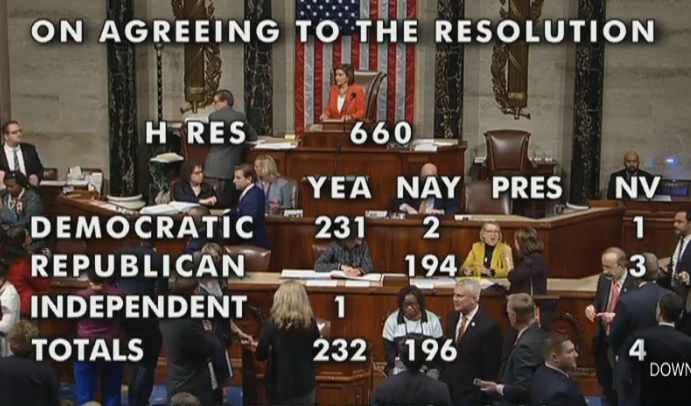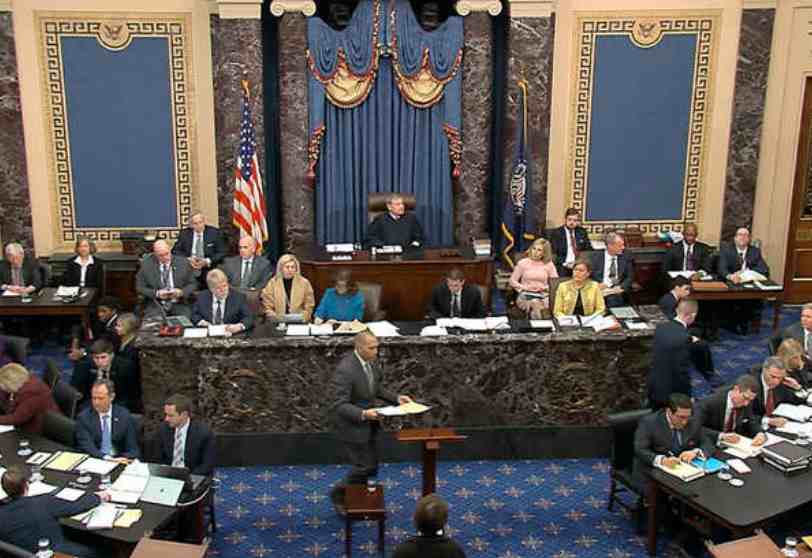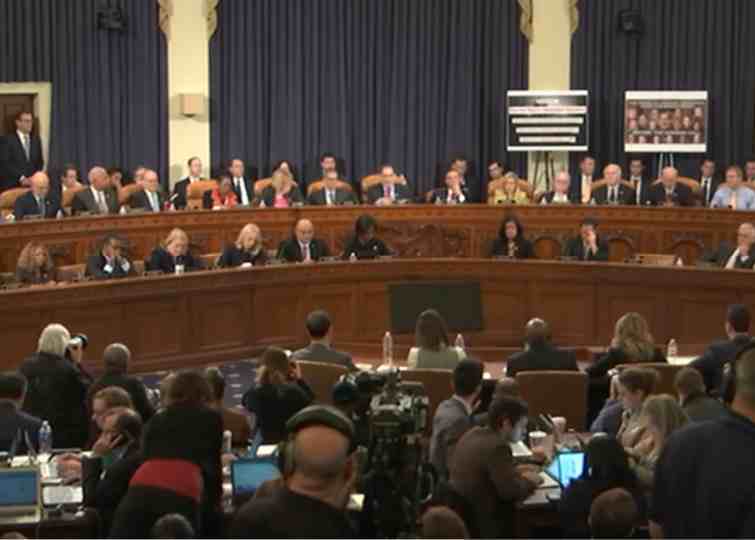
U.S. House Republicans are progressing toward a vote this week that would formalize the ongoing impeachment inquiry into President Joe Biden. But whether leadership has enough votes to approve the measure remains unclear.
Polling released Monday morning indicated that a small plurality of Americans thought the inquiry should move forward, but that even among self-identified Republicans, enthusiasm for the inquiry was slipping.
The survey, conducted by the polling firm Morning Consult, found that 44% of Americans thought the inquiry should move forward, compared to 40% who said it should not. The results broke heavily along partisan lines, with 62% of Democrats saying the inquiry should not proceed while 70% of Republicans saying it should. A plurality of independents, 47%, said the inquiry should not continue, with only 37% saying it should.
The data showed that Americans on the whole are less enthusiastic about the inquiry than they were. Monday’s overall 44% approval of the inquiry was down from 47% in September. Similarly among Republicans, the percentage in favor of a continued investigation fell from 76% to 70% over the same time period.
GOP balancing act
Under U.S. law, a president can be involuntarily removed from office outside a normal election cycle only if he is convicted by the Senate of “treason, bribery or other high crimes and misdemeanors.” An impeachment inquiry is the first step in a process that can lead to impeachment proceedings in the House and, if they are successful, a trial in the Senate.
While impeachments are historically rare, Americans have significant recent experience with them. Former President Donald Trump was impeached twice during his term in office. In 2019, he was impeached for pressuring Ukrainian President Volodymyr Zelenskyy to launch an investigation into Biden, then seen as a likely rival to Trump in the 2020 presidential election.
He was impeached a second time in 2021, after his attempts to overturn the results of the 2020 presidential election resulted in the January 6 assault on the U.S. Capitol. In both cases, Trump was acquitted in the Senate, where a two-thirds majority is required to convict.
With House Democrats expected to unanimously oppose the measure, Republicans will need to find the votes in their own ranks to pass it. They hold 221 seats in the House, where there are currently 434 members, meaning that if the party loses more than three votes, the measure will fail.
Currently, eyes are on the more than a dozen Republican House members who represent districts that Biden won in the 2020 election, and who might suffer politically if they cast an unpopular vote in favor of impeachment.
Previous vote avoided
It was out of concern about these members that former House Speaker Kevin McCarthy allowed the House Committee on Oversight and Investigations to begin inquiries into the impeachment of the president earlier this year.
In the interim, several Republicans representing Biden districts have come out in favor of formalizing the inquiry. However, not all have expressed a position on the measure coming up for a vote this week.
Last week, Speaker Mike Johnson, who took over after McCarthy was voted out in October, told The New York Times he was confident he had the necessary votes.
“This is a vote to continue the inquiry of impeachment, and that’s a necessary constitutional step. I believe we’ll get every vote that we have,” he said.
The Republican House contingent, however, has been difficult to predict in this Congress, as Johnson’s predecessor learned.
More authority for investigators
The vote would strengthen the hand of Republican Representative James Comer, chairman of the House Committee on Oversight and Accountability, who has been leading the inquiry since early this year when his party took control of the House. Among other things, it would allow him to compel witnesses to testify, by subpoena if necessary.
So far, the investigation has delved deeply into the finances of Biden and members of his extended family, including his son Hunter, who was indicted on criminal tax evasion charges last week.
However, House investigators have complained that Biden and his family have not been fully cooperative in turning over evidence and arranging testimony. The committee is threatening to hold Hunter Biden in contempt because he has said that while he is willing to testify publicly, he is unwilling to submit to a closed-door deposition.
Lack of evidence
The committee has so far gathered considerable evidence that Hunter Biden and other members of the president’s family traded on their famous name to help secure favorable business deals, often with foreign companies.
Committee members have more than once presented evidence that they claimed proved President Biden derived personal financial benefits from his relatives’ business activities. But in each case, the evidence has not held up to scrutiny.
Most recently, Comer said a series of payments from Hunter Biden’s company to the president’s personal account made in 2018 — while the elder Biden was out of office — proved that he had benefited from his son’s business activities. It was later disclosed that the payments represented reimbursement for car loan payments that Joe Biden had made on his son’s behalf.
President Biden has consistently denied that he ever used his office to enrich himself and has criticized the impeachment investigation as being politically motivated and without basis in facts.
[content id=”52927″][content id=”79272″]








